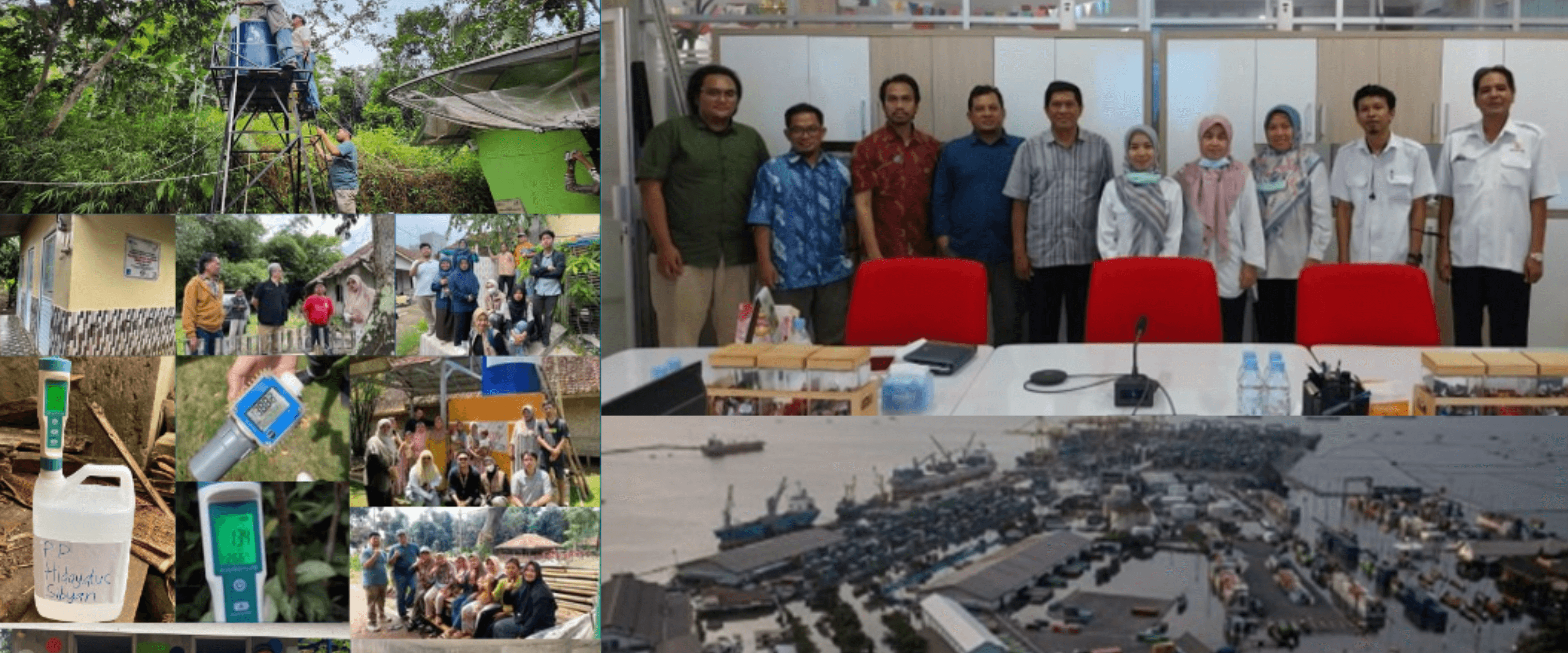Telkom University Strengthens Collaboration and Innovation on Water Security
Keywords:WaterSecurity, Sustainability, Innovation Cooperation on Water Security At the national level, Telkom University collaborates with KONEKSI Australia, the Great River Basin Authority of Indon...

Keywords:WaterSecurity, Sustainability, Innovation
Cooperation on Water Security
At the national level, Telkom University collaborates with KONEKSI Australia, the Great River Basin Authority of Indonesia (BPDA), and the University of Wollongong to develop an integrated water level and flood monitoring system for northern Central Java — a region often affected by floods and water surges. Through this collaboration, Telkom University contributes to the design of IoT-based early warning technologies that enable real-time monitoring of water levels and flow dynamics, supporting local governments in data-driven flood preparedness and risk mitigation.
In 2024, the university also received government funding to create an Image Processing–Based River Waste Sorting Device, capable of identifying and separating waste in river streams through advanced image recognition systems. This technology supports cleaner waterways and promotes sustainable river ecosystems.
Campus Water Management and Infrastructure
Telkom University has established an adequate and safe water conservation system throughout its campus. Each building is equipped with infiltration wells that allow rainwater to absorb into the ground instead of flowing directly into reservoirs, helping to maintain groundwater levels.
Sewage systems are directed to a special reservoir for water filtration before being discharged to the main lake, Lake Tekno. Additionally, the Wastewater Treatment Plant (IPAL) processes river water entering the campus before channeling it to retention ponds and infiltration lakes. Only after this multi-stage treatment is water safely released into nearby rivers.
This process—combined with environmentally friendly wastewater management and the Reduce, Reuse, Recycle (3R) principle—ensures efficient resource use, acts as a pollution prevention mechanism, and minimizes environmental impact. According to internal data, rainwater harvesting and reuse capacity reaches over 650 cubic meters per day, meeting most of the university’s non-consumptive daily water demand.
In addition to on-campus systems, Telkom University also implements community-based clean water initiatives through Sarana Air Bersih (SAB) programs. In 2024, several SAB facilities were established in collaboration with local partners across West Java and Banten. These include bore wells, water filtration units, and sanitation (MCK) installations benefiting more than 1,000 residents in rural communities. The programs not only provide reliable access to clean water but also promote community awareness, maintenance training, and sustainable resource management — directly supporting SDG 6 (Clean Water and Sanitation) and strengthening regional water security.
Commitment to Sustainable Development
Through an integrated approach that bridges research, infrastructure, and global collaboration, Telkom University demonstrates how higher education institutions can play a pivotal role in advancing water security and sustainability. By combining smart technology, effective water reuse, and international partnerships, Telkom University continues to strengthen its position as a leading green campus and a national model of responsible environmental stewardship, contributing to Indonesia’s progress toward a climate-resilient and sustainable future.
Attachments
- Attachment 1: Page 1–15
- Attachment 2: Page 16–90
Access the full supporting documentation here:
🔗 click here.